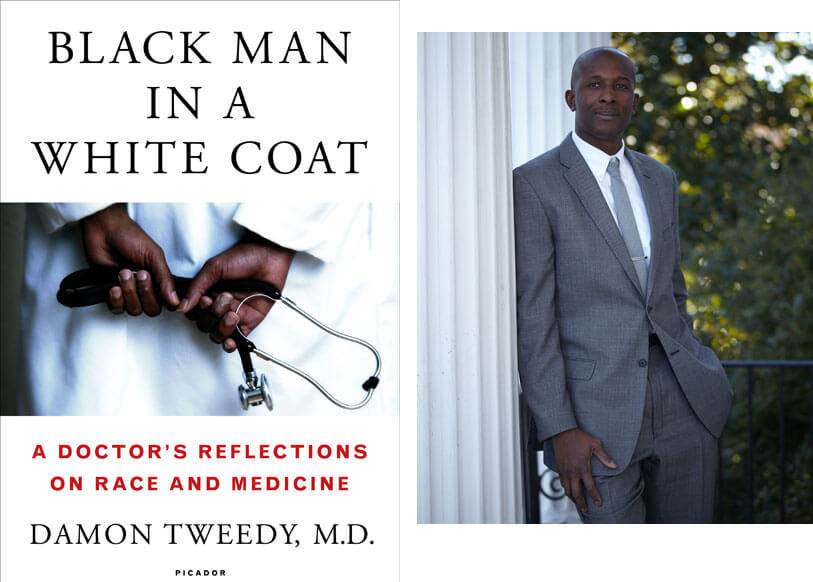When Damon Tweedy was a young medical student at Duke University Medical School, his professors often repeated the same refrain when introducing the class to a new medical disease: it was more common in blacks than whites. “There was this message that being black was bad for your health, but [no one] addressed why or what you could do about it,” Dr. Tweedy says. He started digging deeper on his own and wrote about his findings in his new book, “Black Man In A White Coat” (out Sep. 8). Related: These guys want to help pay your medical bills Where personal and professional intersect Related: Local artists see Black Lives Matter art show as continuation of marches He also says sometimes white doctors make wrong assumptions about black patients, something he experienced himself when he injured his knee playing tennis. At first, the doctor dismissed him and said he was fine, but when Dr. Tweedy revealed he himself was a doctor, he says the entire dynamic shifted. “Suddenly he was really engaged and offered me a physical exam and an X-ray. So in that moment I felt like I was two different people. First, I was Damon Tweedy, average black man off the street. And then I was Damon Tweedy, doctor. Most people wouldn’t call this man racist, but clearly race and class and the way they intersected influenced his thinking.” What can be done He also stresses the importance of education. “Health is about a lot more than simply health care,” he says. “We’re doctors. We learn about science and medicine. But you can offer someone the best treatment in the world and if they can’t afford it, it isn’t helpful to them.” He says medical schools and doctors need to make a better effort at knowing how much the tests and care they offer patients costs. Last, he says some responsibility falls on patients themselves who need to form their own healthy lifestyle habits. “All these things have to happen simultaneously to really make a long-term dent,” he says. Follow Emily on Twitter: @EmLaurence
One major reason Dr. Tweedy found why black patients have more health problems than white patients: they are less likely to have health insurance and are more likely to live in poverty. “That has a huge impact on health,” Dr. Tweedy explains. He says a lot of patients have diabetes, high blood pressure or other conditions that are manageable, but because they can’t afford medication or to see a doctor for a procedure, these conditions often get worse and lead to bigger problems later.
Dr. Tweedy says other races can experience a discrepancy of care too, especially when there is a language barrier. But he stresses that the goal shouldn’t be to match up patients and doctors based on race. “The solutions are complicated and occur on different levels,” he says. On a government level, Dr. Tweedy says ensuring everyone has access to affordable healthcare is important.
The hidden racism problem in healthcare today

Stocks Photography






















